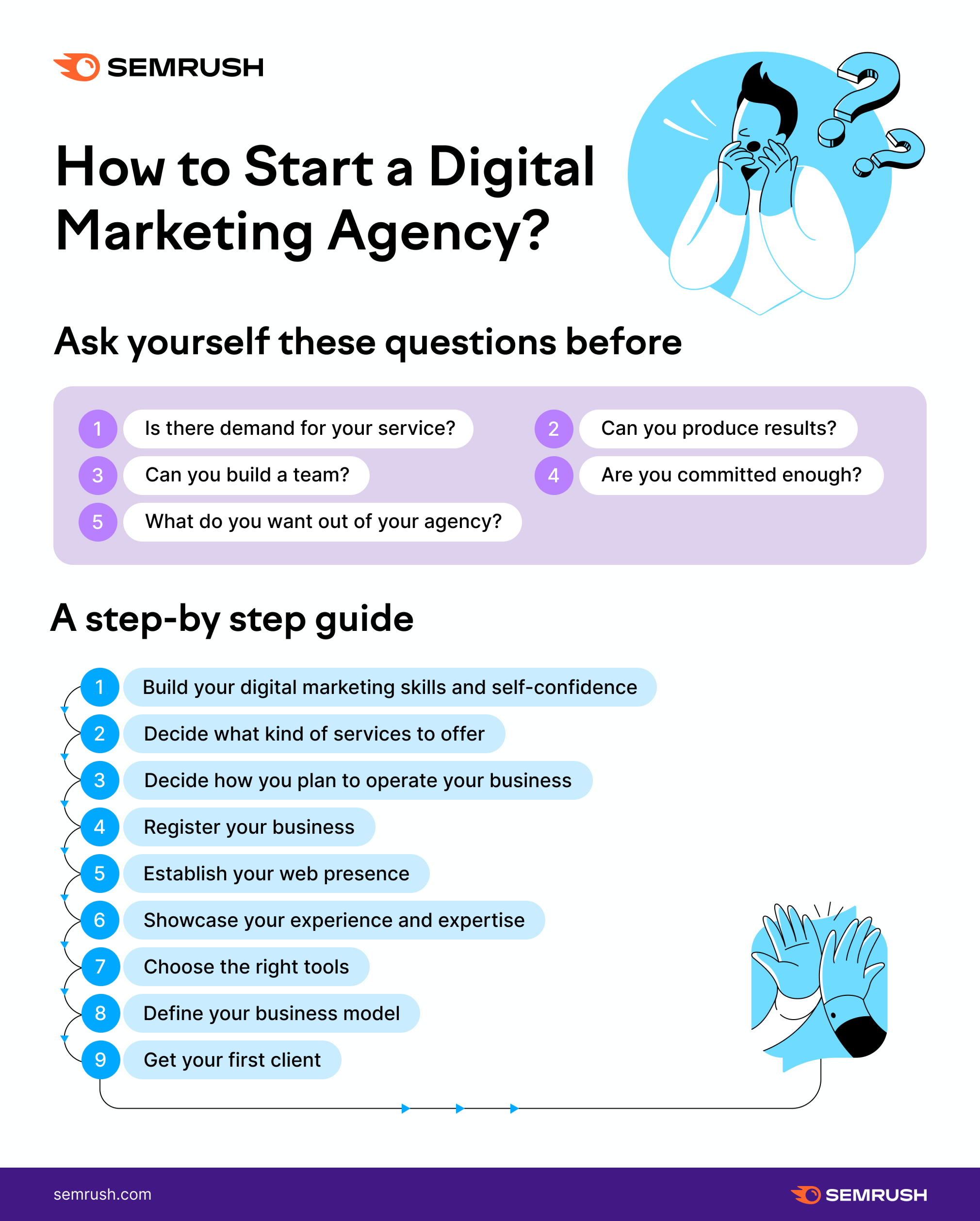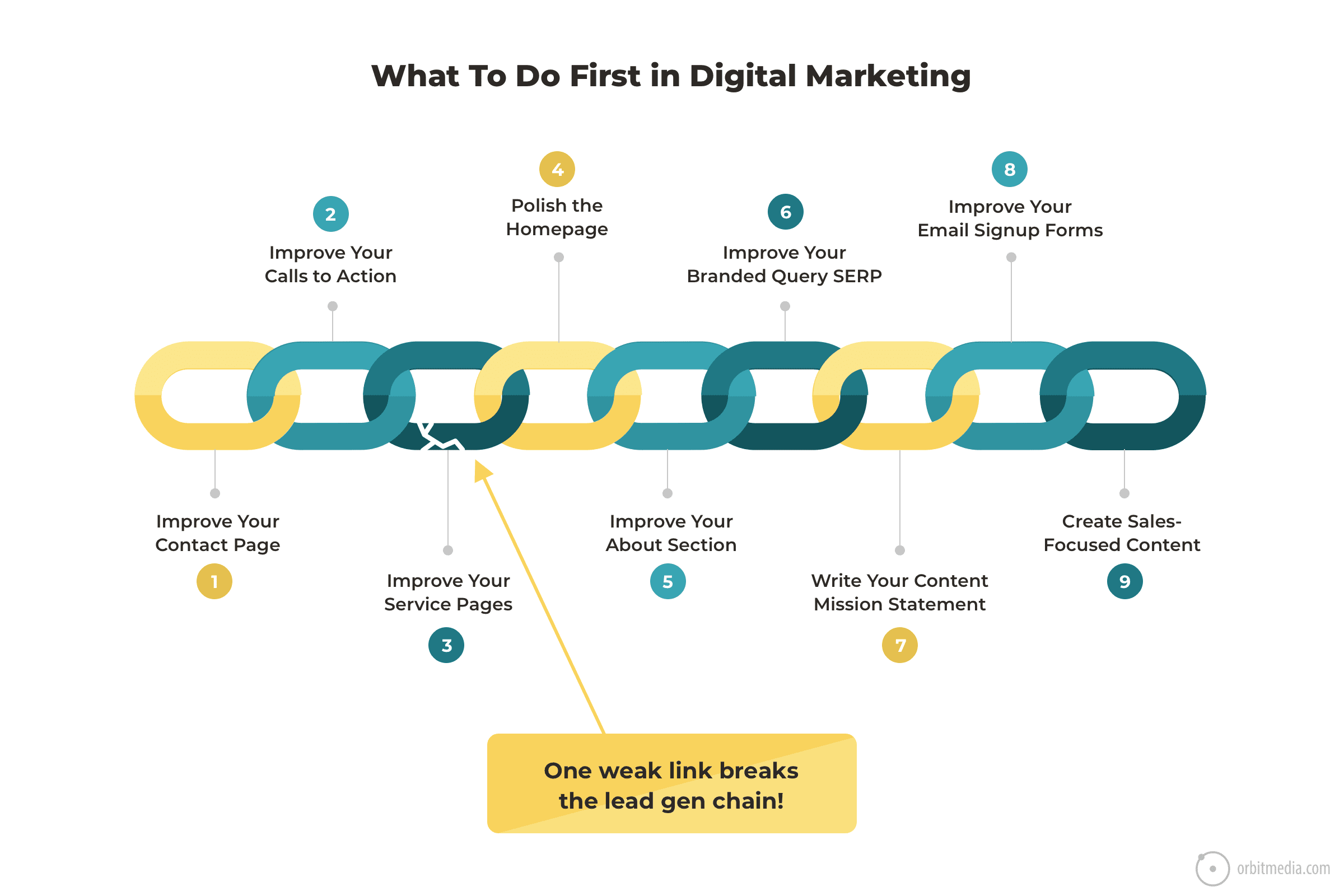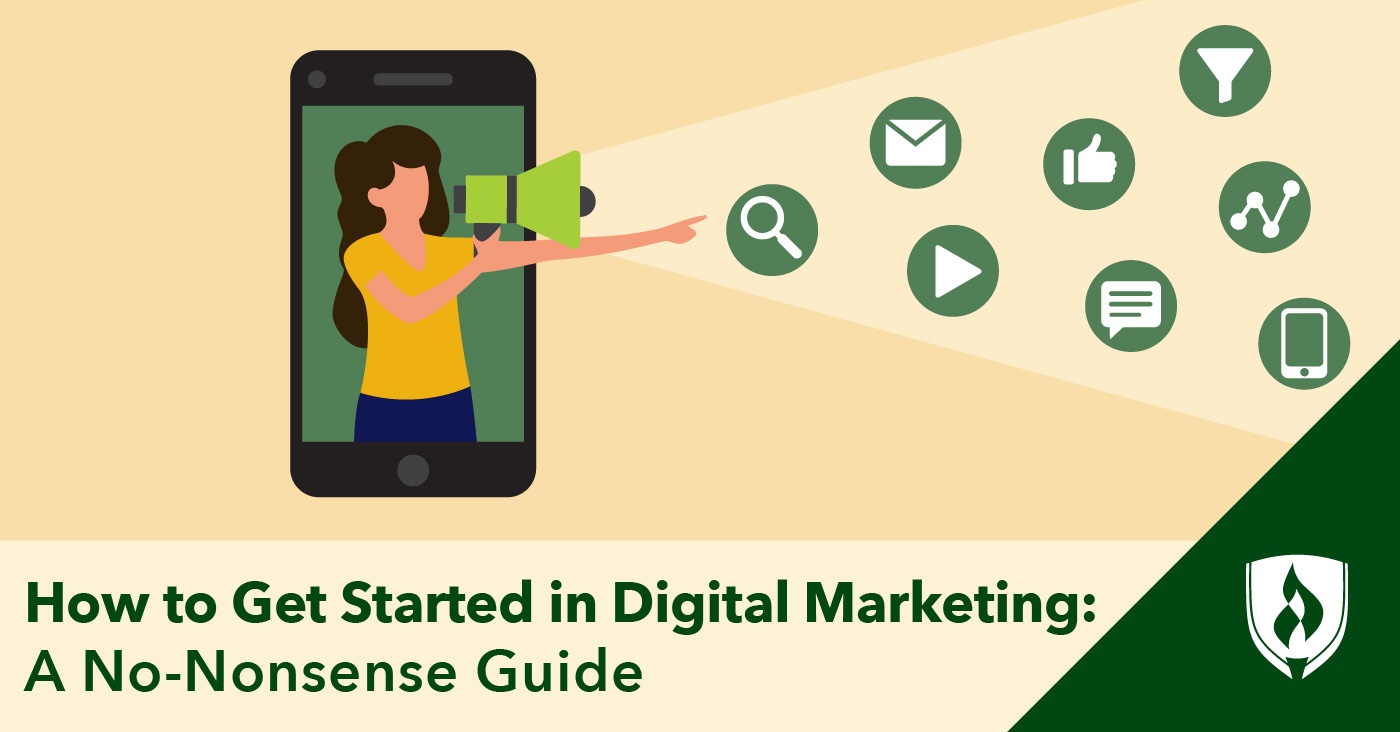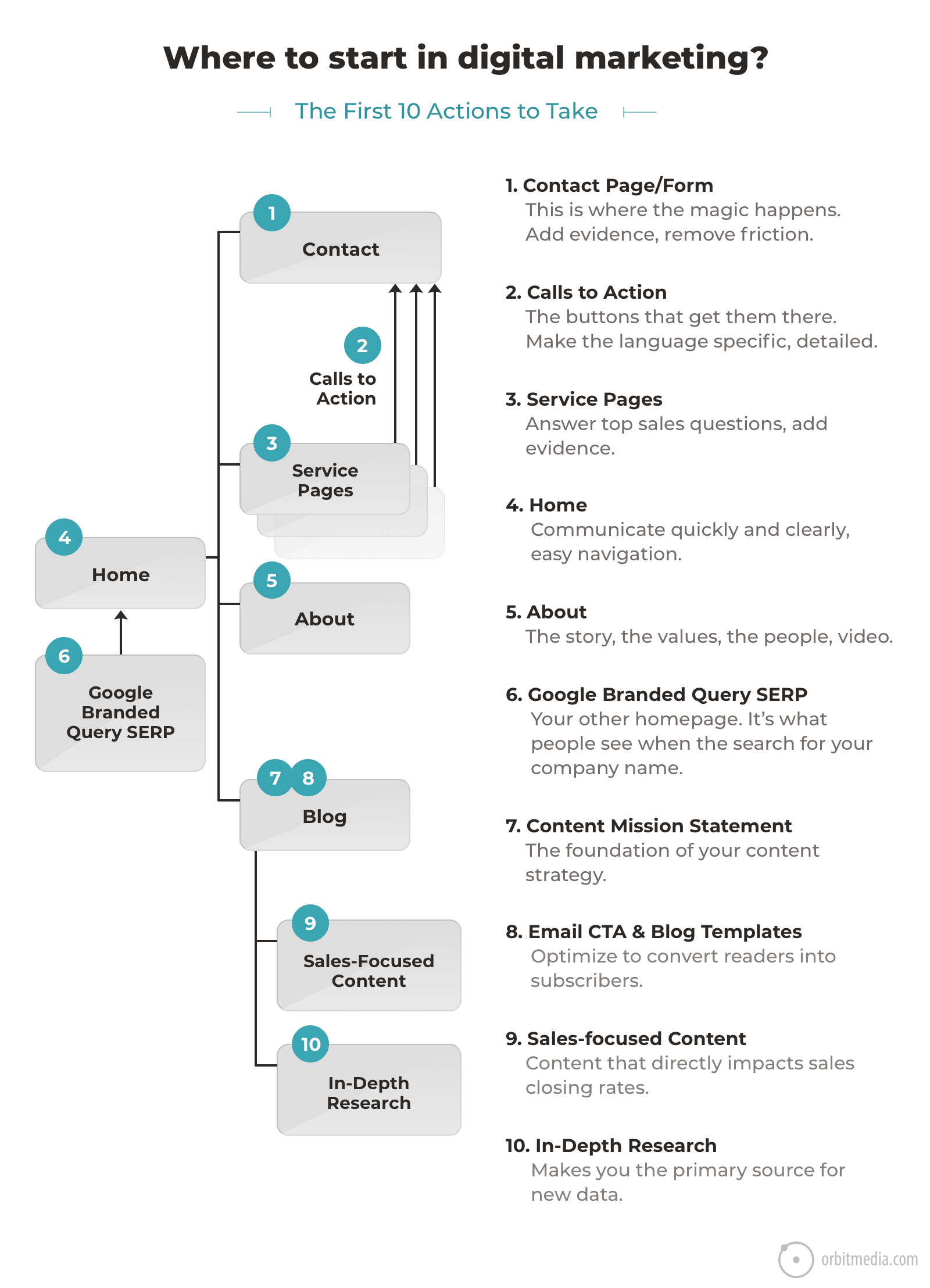Digital Marketing encompasses all marketing activities carried on through digital channels to promote products or services. To get started, familiarize yourself with core concepts and choose a specialization.
Digital Marketing is a multifaceted strategy aimed at reaching, engaging, and converting leads online. This modern marketing approach includes SEO, social media, email marketing, and content creation, among others. Beginners should start by learning the basics, such as understanding market trends and the importance of SEO in online visibility.
Building a solid foundation in digital analytics and content management is also crucial. Picking a particular area to specialize in, like social media marketing or pay-per-click advertising, can help focus your learning and skill development. Networking with other digital marketers and creating a personal brand can also pave the way for success. Aspiring marketers should consistently stay updated with the latest digital tools and platforms to evolve alongside the ever-changing digital landscape.
The Digital Marketing Landscape
Digital marketing thrives in the modern world. It connects businesses to their audience through the internet. Unlike traditional methods, it allows personalized, timely, and cost-efficient campaigns. This section explores digital marketing’s evolution and core strategies.
Evolution From Traditional Marketing
Marketing once relied on print ads, TV, and radio. These methods spread messages wide but not always to the right eyes. Digital marketing changed the game. It uses technology to target customers effectively. This leads to smarter spending and better results.
Core Channels And Strategies
Digital marketing uses many channels. Below are the core ones:
- Search Engine Optimization (SEO): Improves website visibility in search engine results.
- Content Marketing: Engages and educates your audience through valuable content.
- Social Media Marketing: Builds your brand and interacts with your audience on platforms like Facebook and Instagram.
- Pay-Per-Click (PPC): Drives traffic to your website through paid ads.
- Email Marketing: Keeps your audience informed and nurtures leads through targeted messages.
Each strategy has specific tools and techniques. Starting in digital marketing involves learning these basics.
Setting Digital Marketing Goals
Setting Digital Marketing Goals is a crucial step before diving into the vast ocean of digital marketing. It acts as a navigational star, guiding all your strategies and actions. Without clear goals, efforts can scatter and results may not align with business ambitions.
Identifying Your Audience
Knowing who you are trying to reach is the first milestone. Your audience shapes your message and where to broadcast it. Let’s uncover who will connect with your brand:
- Create buyer personas: Build a vivid picture of your ideal customers, considering age, interests, and online behaviors.
- Analyze competition: See who loves your competitors. Learn from their approach to win your own following.
- Social listening: Tune into social media. Discover what lights up your audience. Tailor your content to these insights.
Defining Success Metrics
Setting benchmarks for success turns foggy goals crystal clear. It tells you if you’re winning. Measure progress using these metrics:
| Metric | Description | Why It Matters |
|---|---|---|
| Conversion Rate | Number of visitors who take desired actions | Measures effectiveness of your content |
| Website Traffic | How many visit your website | Indicates brand reach and interest |
| Engagement Rate | Interactions on your content | Shows if content resonates with audience |
Tracking these metrics helps pinpoint strengths and growth areas. Aligning them with your business aims ensures you focus resources effectively.
Building Your Digital Marketing Toolbox
Welcome to the digital era, where marketing transcends traditional print ads and billboards. Digital marketing is the heartbeat of connecting with today’s tech-savvy consumers. Building Your Digital Marketing Toolbox is a journey to master the digital space effectively. Let’s delve into the essential components to launch and enhance your online marketing strategy.
Essential Platforms And Tools
The right set of tools can make or break your digital marketing efforts. A robust toolbox is crucial for seamless campaigns and maximum reach. Here’s what you need:
- Website: Your online storefront. Make sure it’s responsive and SEO-friendly.
- Social Media Management: Platforms like Hootsuite or Buffer to schedule posts and track engagement.
- Email Marketing Software: Like Mailchimp or Constant Contact for newsletters and campaigns.
- Graphic Design Tools: Canva or Adobe Spark for creating eye-catching visuals.
- SEO Tools: Google Analytics, SEMrush, or Moz for keyword research and SEO tracking.
- Advertising: Google Ads and Facebook Ads for targeted ad campaigns.
- Content Management System (CMS): WordPress or Shopify to manage and update website content easily.
Leveraging Analytics For Insight
Data drives decisions in the digital world. With analytics, know your audience better and fine-tune your strategies. Implement these analytics tools for actionable insights:
| Tool | Use Case |
|---|---|
| Google Analytics | Track website traffic and user behavior. |
| Facebook Insights | Measure social engagement and page performance. |
| Hotjar | Visualize user activity through heatmaps. |
| SEMrush | Analyze competitive data and search rankings. |
Consistently reviewing these analytics will reveal improvement areas and opportunities for growth. It’s not just about collecting data but about interpreting it to make smart decisions.

Credit: www.semrush.com
Crafting A Digital Marketing Strategy
Crafting a Digital Marketing Strategy is akin to drawing a road map for your brand’s online success. Begin by setting clear goals that align with your business objectives. Know your audience and understand the digital landscapes they inhabit. With a strategy in place, you’ll navigate the vast digital marketplace effectively and achieve measurable results. Now, let’s delve into the core components: content creation, management, and SEO techniques.
Content Creation and ManagementContent Creation And Management
Great content is the backbone of digital marketing. It attracts, educates, and converts your audience. Start by identifying topics that resonate with your target market. Craft content in various formats: blog posts, videos, and infographics. Ensure each piece is engaging, informative and reflects your brand’s voice.
Managing this content requires a plan. Use a calendar to schedule posts and track performance. Analyze what works and tweak your strategy accordingly. Remember: Consistent, high-quality content builds authority and trust online.
- Identify audience interests
- Create a variety of formats
- Schedule with a content calendar
- Analyze performance
Search Engine Optimization Techniques
SEO helps your content reach its audience. Begin by researching keywords related to your brand and industry. Include these keywords naturally in your content, titles, and meta descriptions. Ensure your website structure is search-engine friendly with clear navigation and fast loading times.
Link building is also vital. Garner high-quality backlinks to boost your domain authority. Strive for a mix of internal and external links. Monitor your rankings and optimize continuously for the best results.
| SEO Aspect | Action |
|---|---|
| Keyword Research | Use tools like Google Keyword Planner |
| Content Optimization | Incorporate keywords naturally |
| Website Structure | Ensure user-friendly navigation |
| Link Building | Acquire quality backlinks |
Launching Campaigns And Measuring Success
Welcome to the fast-paced world of digital marketing. You’ve set your goals, defined your target audience, and refined your message. Now, the thrilling part begins: Launching campaigns and measuring their success. Whether you’re a beginner or looking to optimize your current digital marketing strategy, understanding the execution and analysis of campaigns is crucial. Let’s delve right in.
Execution Of Digital Campaigns
Digital campaigns come to life through strategic execution. You will choose the right platforms and tools for your message. Consider these steps:
- Identify the right channels – Where does your audience spend time online?
- Create compelling content – Engage your audience with videos, blogs, and social posts.
- Optimize for devices – Ensure your content looks great on phones, tablets, and desktops.
- Schedule wisely – Use scheduling tools to post at optimal times.
Promote your campaigns with paid ads for a wider reach. Track your campaign’s progress with built-in analytics tools.
Analyzing And Adjusting Your Strategy
Measuring success means looking at the numbers. Use analytics to understand performance. Here’s what to focus on:
- Traffic: Count how many people visit your website or page.
- Engagement: Look at likes, shares, and comments to gauge interest.
- Conversions: Track actions like sign-ups and purchases.
- ROI: Calculate the return on investment to see profits.
Adjust your strategy based on these insights for better results. A/B testing can help determine what works best. Stay dynamic and be ready to tweak your campaign for success.

Credit: www.orbitmedia.com

Credit: www.rasmussen.edu
Frequently Asked Questions Of What Is Digital Marketing And How Do I Get Started
What Is Digital Marketing Essentially?
Digital marketing is the promotion of products or services using digital channels. It primarily occurs on the internet and includes SEO, social media, and email marketing, among other strategies. Digital marketing aims to reach a specific audience in a cost-effective and measurable way.
How Can Beginners Start Digital Marketing?
Beginners can start digital marketing by learning the basics through online courses, webinars, or blogs. Creating a website or blog and practicing SEO, content marketing, and using social media for business are practical first steps. Engaging with online communities and networking can also provide valuable insights and opportunities.
What Are The Main Types Of Digital Marketing?
The main types of digital marketing include search engine optimization (SEO), pay-per-click (PPC) advertising, content marketing, social media marketing, email marketing, and affiliate marketing. Each type focuses on different strategies to attract and engage online audiences.
How Does Seo Impact Digital Marketing?
SEO directly impacts digital marketing by improving the visibility of a website or content in search engine results. It involves optimizing various elements like keywords, content quality, and backlinks to rank higher, attract organic traffic, and increase online presence.
Conclusion
Embarking on a digital marketing journey unlocks a world of possibilities. Establishing a solid strategy is key. Start by defining goals, selecting platforms, and crafting quality content. Embrace SEO and analytics to refine your approach. Ready, set, dive into digital marketing and watch your business thrive!









